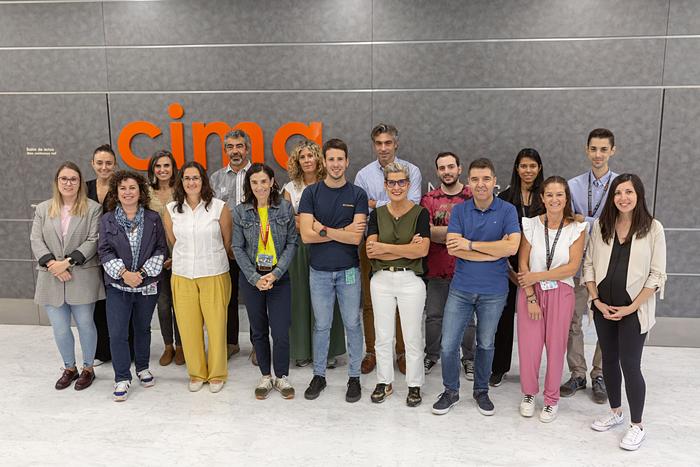Researchers from Cima and the Clínica Universidad de Navarra, together with the international cooperative group Diffuse Midline Glioma (DMG-ACT), have confirmed that blocking an immune checkpoint molecule reduces the tumor and prolongs survival in animal models of the most aggressive childhood cancer. This research, carried out at the Cancer Center Clínica Universidad de Navarra, shows that inhibition of TIM-3 promotes the immune memory of diffuse intrinsic stem glioma (DIPG) and improves the prognosis of the disease.

Credit: Manuel Castells. Cima Universidad de Navarra
Researchers from Cima and the Clínica Universidad de Navarra, together with the international cooperative group Diffuse Midline Glioma (DMG-ACT), have confirmed that blocking an immune checkpoint molecule reduces the tumor and prolongs survival in animal models of the most aggressive childhood cancer. This research, carried out at the Cancer Center Clínica Universidad de Navarra, shows that inhibition of TIM-3 promotes the immune memory of diffuse intrinsic stem glioma (DIPG) and improves the prognosis of the disease.
DIPG is an aggressive brain stem tumor and the leading cause of death related to pediatric cancer. Due to its location therapeutic options are limited, so it is essential to study effective treatments. “In recent years, immunotherapy has proven to be an alternative for many types of cancer. In particular, immune checkpoint inhibitors (key regulators of the immune system) have shown good results in various solid tumors. But due to the unique tumor microenvironment of DIPGs, classical inhibitors have not been effective in these pediatric patients,” explains Iker Ausejo-Mauleon, predoctoral researcher at the Cima Cancer Division and first author of the paper.
Antitumor immune response
Recently, the presence of the TIM-3 checkpoint in tumor cells has been linked to the proliferation and metastatic capacity of different types of cancer. “In this study, we show that TIM-3 is also highly expressed in both tumor cells and cells in the DIPG microenvironment,” explains Dr. Marta Alonso, co-director of the Cima Solid Tumor Program and director of the study. The results have been published in the latest issue of the scientific journal Cancer Cell.
The next step was to block this molecule and the researchers found that its inhibition promotes a proinflammatory tumor microenvironment that favors a potent antitumor immune response. “As a consequence, long-term survival of experimental models is increased. Therefore, TIM-3 is presented as a therapeutic target that can guide the development of clinical trials for these patients,” say the researchers.
This work has been carried out thanks to funding from the European Research Council (ERC), ChadTough-Defeat DIPG Foundation, the Spanish Association Against Cancer, Vicky’s Dream, Adey Foundation, ACS Foundation and the Pablo Ugarte Association, among other public and private organizations.
Journal
Cancer Cell
DOI
10.1016/j.ccell.2023.09.001
Method of Research
Experimental study
Subject of Research
Animals
Article Title
TIM-3 blockade in diffuse intrinsic pontine glioma models promotes tumor regression and antitumor immune memory
Article Publication Date
5-Oct-2023



